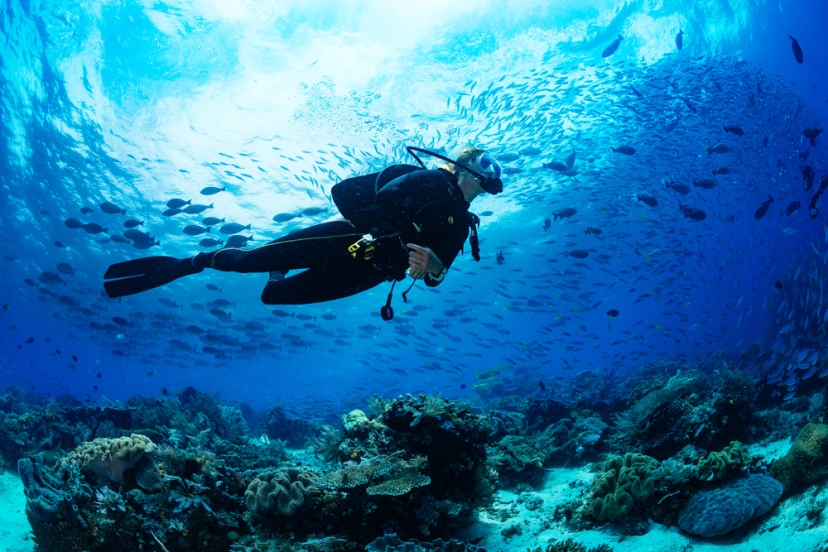5 Diseases That Make You Have to Avoid Activities

Everybody is different. Some people might enjoy sitting and relaxing by the beach, while others are more satisfied with diving and swimming to explore the beauty on the seafloor. No matter how much you love it, however, if your body shows signs of having the diseases below, diving might no longer be the best activity for you!
Ear Conditions or Balance Problems
For divers, “earaches” are probably common. Practically every diver has to encounter it, because with every 33 feet of diving depth, the atmospheric pressure (around the diver) increases by as much as 1 atmosphere (by 1 time). This rapid changes in external pressure can cause injuries to the middle ears or inner ears. Therefore, people with ear conditions or people who are interested in diving activities should consult their doctors in order to prevent potential dangers.
Lung Conditions (Collapsed Lungs)
While a diver rises up to the surface, the amount of air inside their lungs can easily double. As a result, the diver must have excellent lung health and no history of lung conditions like atelectasis or collapsed lungs, which can cause blood oxygen levels to be so low that the person experiences panting, fatigue and an abnormally fast heartrate.
Asthma
When our bodies dive below the water surface, our lung capacity decreases due to increased atmospheric pressure and rising density of the air we breathe in line with rising atmospheric pressure. Therefore, if an asthma patient suffers from an attack while underwater, the narrowing of the airways can cause a shortage of air to meet the patient’s needs. Meanwhile, extensive exercises like kicking water to fight water currents can make asthma symptoms even worse.
Heart Disease
Heart disease patients need to not only control heavy exercises like marathon running but also Water activities like diving, especially deep diving, which can also affect the heart. When diving, sometimes it is necessary to physically exert oneself or support oneself against a resisting force, so it is a fairly heavy type of exercise. Moreover, the cold temperature of water can cause blood vessels to shrink and for blood pressure to be higher, leading the heart to have to work harder in response to the higher blood pressure than when compared to when on land.
Patent Foramen Ovale (PFO)
Decompression sickness (DCS) is definitely a condition that diving enthusiasts are familiar with. Normally, if blood nitrogen levels rise to the point of developing DCS, doctors will have to check for physical damage. Frequently, the severity is in Type I, that is when the body shows signs of pain in the joints and muscles, but it can also be Type II, which is more severe and can involve symptoms like numbness and weakness.
Furthermore, patients with PFO (patent foramen ovale) or a hole between the upper right and left chambers (atria) of the heart due to the foramen ovale not closing, there can be risk of Type III that includes brain symptoms, because nitrogen bubbles from the right atrium might enter the left atrium via the opening through the foramen ovale and reach the brain without being filtered by the lungs. This is not only dangerous for the brain but can also affect vision.
There is probably nothing that can make a person happier than doing something they love. However, if that happiness brings harm to you, it would probably be better if you can determine your own lifestyle by going for a physical check-up to receive medical advice in order to allow you to enjoy every activity without worry.


